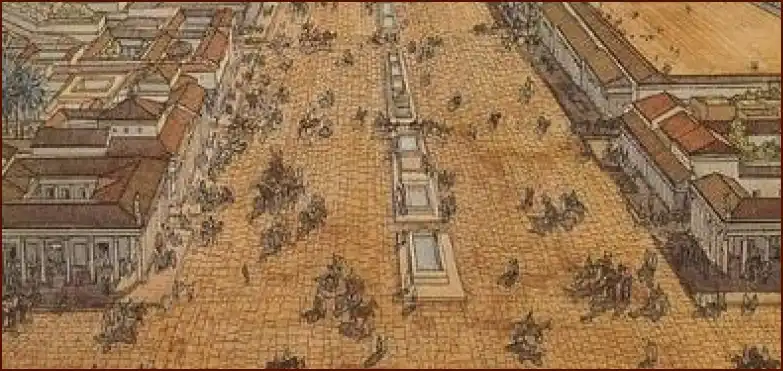While poetry often takes the spotlight in discussions of Hellenistic literature, the period also saw the crucial development of early prose fiction. This era laid the groundwork for what would eventually become the ancient novel, a genre focused on the adventures and romantic trials of individuals. Unlike the grand myths of epic poetry or the public dramas of the theater, these prose narratives offered stories of private lives, travel, and personal fortune, catering to a new audience of individual readers.
Table of Contents
Exploring this emerging form of literature means looking at a diverse range of narrative prose that went beyond traditional history or philosophy. From idealized romances to more satirical and realistic tales, Hellenistic authors began to experiment with long-form storytelling that centered on fictional characters and their extraordinary experiences.
🌍 Travel and Adventure Narratives
With the expansion of the Greek world under Alexander, there was a surge in public interest in distant lands and exotic cultures. This curiosity was fed by a genre of fantastic travel literature that often blurred the lines between fact and fiction. Writers created tales of voyages to incredible, faraway places, filled with utopian societies, strange creatures, and marvelous wonders.
These stories, while not novels in the modern sense, were an important precursor. They accustomed audiences to prose narratives that were designed to entertain and amaze, focusing on the incredible journeys of a central protagonist. They were a form of escapist literature for an age of expanded horizons.
❤️ The Beginnings of the Ancient Novel
The Hellenistic period is where the first recognizable elements of the ancient romance novel began to take shape. While the most famous examples, like Longus’s *Daphnis and Chloe*, were written later under the Roman Empire, their roots are firmly in the Hellenistic world. These stories typically followed a formula that proved incredibly popular and enduring.
The key ingredients of the Hellenistic romance included:
- A Pair of Young Lovers: The protagonists are usually a beautiful, high-born young couple who fall instantly in love.
- Separation and Suffering: The lovers are soon separated by a series of misfortunes, such as kidnappings by pirates, shipwrecks, or mistaken identity.
- Travel and Ordeals: Their separate journeys take them across the Mediterranean world, where they face numerous trials and must prove their loyalty and preserve their chastity.
- A Happy Reunion: After enduring all their hardships, the couple is finally reunited and marries, living happily ever after.
This focus on love, fortune (*tyche*), and the preservation of virtue in a chaotic world was a powerful theme in the uncertain political landscape of the Hellenistic age, offering readers a comforting and predictable narrative resolution.
More Topics
- Curses: The History of the Evil Eye and Binding Magic
- Magical Plants: A Witch’s Garden of Herbs and Poisons
- Roman Magic: Curses, the Strix, and Everyday Protection
- Circe: The Greek Sorceress of Transformation and Myth
- Greek Magic: Hecate’s Power, Oracles, and Enchantresses
- Japanese Magic: Yōkai, Onmyōdō, and Supernatural Folklore
- Empress Chen Jiao: The Royal Scandal of Witchcraft in Han China

